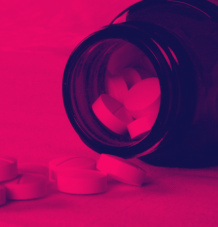Drug funding helps results
 Drug company funding significantly inflates psychiatric drug trial results, new research reveals.
Drug company funding significantly inflates psychiatric drug trial results, new research reveals.
A study by Ohio State University has found that psychiatric drugs appear about 50 per cent more effective in manufacturer-funded clinical trials compared to those funded independently.
Tamar Oostrom, assistant professor of economics, calls this the “sponsorship effect”, in which industry funding dramatically skews trial outcomes.
Previous research suggested bias in manufacturer-sponsored trials, but Oostrom's study is the first to directly compare results from the same drugs across differently funded trials.
“I wasn’t surprised that I found an effect,” she said, “but I was surprised by the size of the effect.”
Published in the Journal of Political Economy, the study examined 509 double-blind randomised controlled trials (RCTs) of antidepressants and antipsychotics.
Although RCTs are considered the most reliable method for testing drug efficacy, the study found substantial differences in results based on trial funding.
For example, 12 of 14 manufacturer-funded trials found Effexor more effective than Prozac, while only one of three independently funded studies agreed.
Oostrom also investigated trial designs, including dosage, duration, and patient demographics, but these factors did not explain the sponsorship effect.
Instead, she found that publication bias - where favourable studies are more likely to be published - played a key role. Including unpublished trials reduced the sponsorship effect by 20 per cent.
“Trials funded by manufacturers in which their drug appears more effective are more likely to be published,” said Oostrom.
This bias, she found, is less common in independently funded studies.
While preregistration requirements have helped reduce publication bias, only one-quarter of all preregistered trials report their results.
Many psychiatric drugs on the market were approved before such measures, potentially relying on incomplete data.








 Print
Print